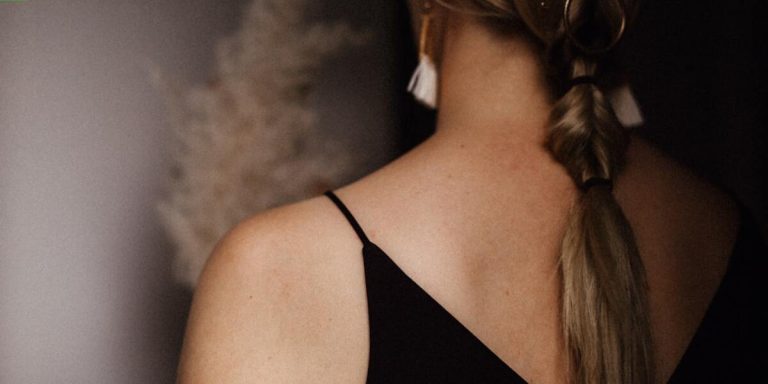Does Hard Water Cause Hair Loss? Unveiling the Truth Behind the Theory
It’s a common question that crosses our minds: does hard water cause hair loss? This query, often sparked by the apparent correlation between people living in areas with hard water supply and increased incidents of hair fall, has been floating around for quite some time. The concern is valid; after all, caring about one’s crowning glory is only natural.
This blog post aims to dig deep into this theory and unveil the truth behind it. We will explore what experts say regarding the role of hard water in hair health deterioration or if it truly exacerbates existing scalp conditions leading to escalated hair loss issues. Stay with us as we navigate through scientific insights linking (or not) your tap’s hardness level to those distressing strands on your comb.
Did you know?
Did you know that hard water is often high in calcium, which can build up on the hair and scalp causing dryness, dullness, tangling of hairs,and exacerbating existing hair fall issues due to increased breakage?
Understanding the Impact of Hard Water on Hair Health
Hard water, a prevalent issue in many households today, has been increasingly linked to problems with hair health. Primarily composed of high mineral content—specifically calcium and magnesium—the hardness of the water can play an unnoticed yet significant role in your daily hair care regimen. With each rinse using hard water, these minerals build up on the scalp over time, possibly leading to various issues like dryness, breakage or even exacerbating latent conditions such as hair loss.
We must peel back layers and delve into why hard water damages your hair. Washing with hard water repeatedly doesn’t only leave behind residue; it also affects your scalp’s pH level. Hair thrives within a specific acidity range, ideally between 4 and 5 on the pH scale. Exceeding this limit can disrupt its natural balance, potentially causing inflammation and increasing fungal activity. This activity is a known catalyst for alopecia areata—an autoimmune disorder resulting in sudden patchy baldness.
Examining the Mineral Content in Hard Water and Its Effects
Hard Water is a term familiar to many, yet the intricate details of how it impacts our hair health often go unnoticed. Among the top queries people have concerning hard water and its effects on hair is “does hard water cause hair loss?” This section aims at examining this pivotal question in depth.
Now let us understand how these minerals can play havoc with your precious locks leading to potential damage or even accelerated rate of shedding.
Firstly, an excessive buildup of such sturdy minerals around each strand impairs essential moisture from penetrating into them causing dryness and brittleness which end up making strands brittle enough for breakage during combing or bathing rituals itself.
How Does Hard Water Interact with Your Hair and Scalp?
Hard Water- How Does It Interact with Your Hair?
When it comes to understanding interactions between your scalp and this kind of H2O first we need to know what makes up ‘hard’ waters composition. To put simply, it has high mineral content such as magnesium and calcium compared to its softer counterpart which primarily consists only hydrogen-oxygen molecules (H20).
Magnesium or calcium ions present on these minerals attach themselves onto our strands each time they come into contact through bathing or similar activities leading an unsightly build-up residue behind reducing shine vibrancy overall appearance eventually resulting damage including breakage thinning even balding areas.
Identifying Signs of Hair Loss Due to Hard Water Use
Hair loss is a common problem that can occur due to several reasons. One of the overlooked causes might be the hard water you use daily for hair washes and hygiene purposes. Hard water significantly differs from its soft counterpart, primarily in terms of mineral content.
Generally, it contains high levels of magnesium and calcium which could lead to various hair problems like dryness, breakage or even hair loss.
Witnessing escalated thinning areas on the scalp and annoying residues on washed utensils using the same water resources provides undeniable proof. This indicates that notorious minerals—magnesium and calcium—are abundant in ‘hard’ water compared to softer water. Consistent exposure to this undesirable scenario can lead to damage, potentially accelerating balding in people with genetic susceptibility, making a normal process a complete nightmare!
Recognizing Early Symptoms Linked to Mineral Buildup
With the proliferation of hard water usage in many households, understanding its correlation with hair loss has become increasingly important. Does hard water cause hair loss? The short answer is yes.
Now let’s dive into recognizing early symptoms linked to mineral buildup.
The first sign you may notice is consistent dryness and itchiness on your scalp post-shower. Hard water can strip away the natural oils from your scalp leading to these discomforts.
Next, if instead of a glossy shine your tresses appear dull and lackluster even after washing thoroughly it could be an indicator that minerals are building up on them.
Another tell-tale symptom might include changes in texture or atypical frizziness. Minerals like calcium and magnesium tend to latch onto the shaft altering their smooth structure causing roughness which leads to tangled strands prone to breakage hence triggering thinning or patchy bald spots over time.
Discoloration too can point towards potential issues owing primarily due to iron particles present in such waters interacting negatively with certain pigments within shampoos resulting not only changed hue but also adding brittleness aiding increased fallout rates.
The Connection Between Showering With Hard Water and Increased Shedding
Hard water contains higher levels of minerals like calcium and magnesium compared to soft or normal tap water; when you shower with it repeatedly, these compounds settle on your scalp. This forms a layer preventing your follicles from absorbing moisture necessary for healthy growth leading to brittle strands more prone to breakage—thus shedding.
Furthermore, an increase in buildup can result in dandruff formation—a common culprit in hair thinning. By suffocating the roots of their much-needed oxygen supply due to blockages created by mineral sedimentation over time—it triggers itching incidents making us scratch more severely than required which inadvertently results in uprooting healthy hairs along with weak ones causing rapid onset balding spots if not rectified immediately.
Combatting Hair Loss From Hard Waters: Effective Solutions
Hard water is more than just a burden on your bathroom fixtures; it has been pinpointed as one of the less-known causes contributing to hair loss. Hard water contains high levels of dissolved minerals such as calcium, magnesium and iron that build up over time causing damage to scalp health – but how does this connection with our crowning glory work? Mainly by blocking follicles.
When you wash with hard water, these mineral deposits accumulate around individual hair strands leading to breakage, dullness and thinning due its restricting effect on natural oil distribution across the length of your tresses. Furthermore, hard water alters pH balance making an otherwise healthy scalp dry and flaky thereby encouraging dandruff – another common precursor for dramatic hair shedding episodes.
However in 2023 we are faced not only problems but also solutions! Amongst various effective approaches available today include installing shower filters specially designed for reducing hardness elements or opting for chelating shampoos which bind metallic ions rendering them soluble thus easily flushed out during washing sessions. Ultimately maintaining consistency in any chosen strategy will help overcome havoc wreaked by hard waters preserving both integrity and vitality of your locks.
Filtration Methods: Softening Your Home’s H2O for Better Hair Care
Hard water is often a hidden culprit behind hair loss. But, does hard water cause hair loss? In short, yes – it can indirectly lead to thinning tresses and exacerbate other scalp conditions.
The good news is there are several effective filtration methods that can help combat this looming issue.
First up in our list of solutions is the installation of a whole-house water softener system. These systems work by replacing calcium and magnesium ions in your hard water with sodium ions, which don’t stick onto the hair strands or clog scalp pores.
Secondly, consider getting a showerhead filter specifically designed for softening hard waters. It offers an affordable alternative if you are not ready for significant hardware installations like whole-house systems yet want immediate positive effects on your stream quality – perfect for giving your locks better care starting from its daily washes!
Thirdly, distilled or purified bottled waters could be used as final rinse during showers to protect your mane after shampooing & conditioning when tap-water quality isn’t at par due to any reason.
A fourth option is adopting soap nuts into your washing routine—these natural alternatives effectively cleanse without leaving residues common shampoos might leave plus they work well with both soft and hard waters; hence no more worrying about damaging deposits sitting tight atop every strand post-shower!
Alternative Washing Techniques to Protect Against Follicle Damage
In our quest to combat hair loss attributed to hard water, we must consider various alternative washing techniques. Adopting these methods can help protect against follicle damage.
Firstly, let’s look at shower filters. Shower filters are a simple yet effective tool in the fight against hair loss caused by hard water. They work by reducing the number of heavy minerals present in water that could lead to scalp calcification – an under-discussed factor when considering “does hard water cause hair loss?” Therefore, incorporating a shower filter into your daily regimen contributes greatly towards preserving your tresses and lessening overall strand breakage.
Secondly, investing time rinsing your head with bottled or purified soft-water regularly has proven successful for many sufferers of this issue. This technique helps cleanse away harsh chemicals and mineral deposits left over from shampooing with none other than—you guessed it—hard water! Although it may seem unusual initially, adopting this method aids effectively in maintaining not only healthier but glossier locks too!
Third on our list is using chelating shampoos or conditioners formulated specifically for those exposed heavily to mineral-rich waters; they offer considerable relief owing largely due their pH balancing benefits alongside removing any adverse leftover residue sitting heavily on both scalp and strands alike.
Conclusion
In essence, while it’s clear that there isn’t a direct, universally-accepted answer to the question “does hard water cause hair loss?”, what cannot be denied is that hard water can have overall negative effects on your hair health. The build-up of minerals might not directly lead to balding but indirectly contribute by making your scalp dry and brittle leading to increased hair fall over time.
Be sure you’re investigating all possible factors if you are experiencing significant hair loss as this could be due to other more prevalent issues like genetics or hormonal imbalances rather than just blaming the shower. Take some time out browsing through our website for an in-depth understanding of various ‘Hair Loss Causes’. Information surely provides strength – especially when combating something as profound-like losing one’s crowning glory!







